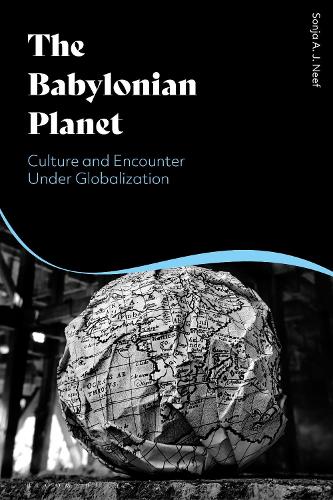
The Babylonian Planet: Culture and Encounter Under Globalization
(Hardback)
Available Formats
Publishing Details
The Babylonian Planet: Culture and Encounter Under Globalization
By (Author) Sonja Neef
Edited by Martin Neef
Translated by Jason Groves
Bloomsbury Publishing PLC
Bloomsbury Academic
2nd December 2021
United Kingdom
Classifications
Tertiary Education
Non Fiction
Philosophy of language
Media studies
Cultural studies
303.482
Physical Properties
Hardback
224
Width 156mm, Height 234mm
490g
Description
What is astro-culture In The Babylonian Planet it is unfolded as an aesthetic, an idea, a field of study, a position, and a practice. It helps to engineer the shift from a world view that is segregated to one that is integrated from global to planetary; from distance to intimacy and where closeness and cosmic distance live side-by-side. In this tour de force, Sonja Neef takes her cue from Edouard Glissants vision of multilingualism and reignites the myth of the Tower of Babel to anticipate new forms of cultural encounter. For her, Babel is an organic construction site at which she fuses theoretical analysis and case studies of artists, writers and thinkers like William Kentridge, Orhan Pamuk and Immanuel Kant. Her skilful interrogations then allow her to paint a portrait of art and culture that abolishes the horizon as a barrier to vision and reclaims it as a place of contact and relation. By combining the Babylonian concept of the encounter and the planetary concept of the whole-earth, Neef creates a space an astro-culture in which she can examine topics as varied as language, translation, media, modernity, migration and the moon. In doing so, she instigates a renewed cultural understanding receptive to the kinder forms of cultural encounter and globalisation she hopes will come.
Reviews
We can now say that Sonja Neefs thinking about and analysis of encounters in the era of globalisation was prophetic. When she wrote these essays, the sense of urgency about the care for the planet, and the importance of the intercultural encounters that the qualifier Babylonion habours, were not as keen as they are today. We miss her wisdom and insight, but at least we now have this book - a monument of sorts. * Mieke Bal, Professor of Cultural Analysis, Amsterdam School for Cultural Analysis (ASCA), The Netherlands *
The Babylonian Planet rethinks human civilization in terms of its virtually planetary distribution in time and space. Its comprehensive narrative integrates millennial events of language, communication, mediation, and translation with significant and precisely denoted cultural forms and traces the intertextual lines of their historical transformations in the movement from globalization to planetization. * Bruce Clarke, Paul Whitfield Horn Distinguished Professor of Literature and Science, Texas Tech University, USA *
The Babylonian Planet reinvents cultural studies under the prism of planetarization by the use of a creative and convincing methodology, mixing issues as diverse as mythology and deconstruction or cosmos and globalization, while underlining the essential need to thinking translation culturally. The ultimate work of a great figure of cultural studies too quickly disappeared, whose perspective remains of an extreme topicality. * Damien Ehrhardt, Associate Professor, University of Paris-Saclay in Evry, France *
Author Bio
Sonja Neef (1968-2013) was Junior Professor of European Media and Culture at the Bauhaus University in Weimar, Germany, from 2003 until 2010. She also became a Fellow at the International Kolleg Morphomata at the University of Cologne and a Feodor-Lynen Scholar of the Alexander von Humboldt Foundation at the University of Evry (Paris).
